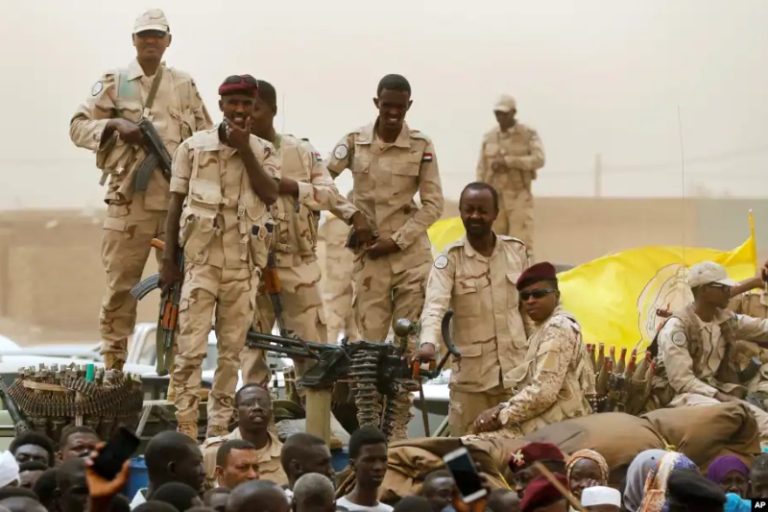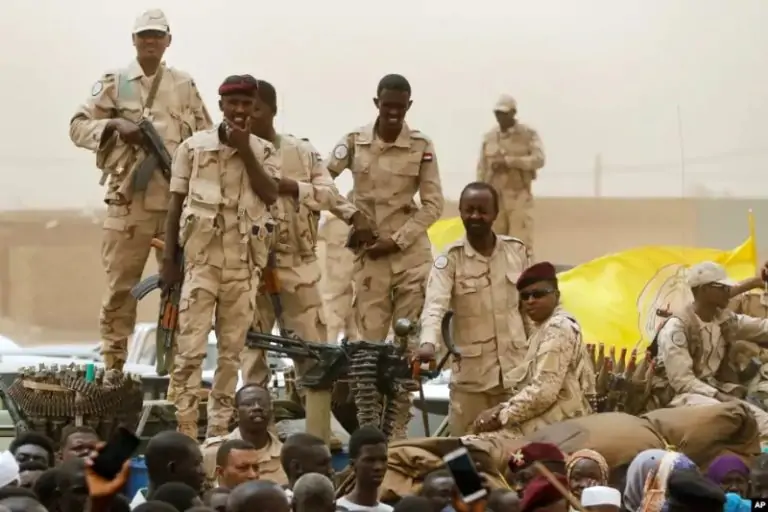

sudans tense standoff the military holds firm on ceasefire conditions amid ramadan approaches
Sudan finds itself on the brink as General Yasser al-Atta, representing the military, delivers an unequivocal message: no ceasefire during the upcoming Islamic holy month of Ramadan unless specific conditions are met. This resolute stance further intensifies the long-standing conflict between Sudan’s armed forces and the paramilitary Rapid Support Forces (RSF), laying bare the intricate political landscape that continues to shape the nation’s destiny.
At the heart of the deadlock lies a pivotal demand from the military: the RSF must withdraw from civilian and public spaces. This condition, grounded in a commitment forged during mediated talks in Jeddah last May, signifies the military’s unwavering determination to uphold previously established agreements and restore order in a nation grappling with internal strife. The RSF’s response to this demand holds the key to unlocking progress as both sides grapple for dominance in Sudan’s evolving political narrative.
The seeds of the current conflict were sown in mid-April 2023, when disagreements over Sudan’s transition to civilian rule erupted into a fierce clash between the army and the RSF. The toll on the nation has been immense, with widespread devastation, displaced communities, and crumbling infrastructure. While the RSF initially gained ground, recent reports hint at a potential shift in momentum, particularly in strategic regions like Omdurman. The battle lines are drawn, setting the stage for a challenging and pivotal chapter in Sudan’s turbulent history.
Despite recent military advancements, the road to peace in Sudan remains fraught with challenges. The RSF’s response to the military’s conditions adds an element of uncertainty, echoing the failures of previous attempts to broker ceasefires. Deep-seated animosities and power struggles persist, complicating efforts to find common ground. Meanwhile, the humanitarian crisis intensifies, demanding urgent intervention as millions of civilians grapple with displacement, hunger, and deprivation.
International Appeals and Complex Dynamics: Navigating Sudan’s Reconciliation
International actors, including the United Nations and the United States, have decried the violence and urged all parties to prioritize peace and humanitarian assistance. However, achieving lasting reconciliation in Sudan necessitates navigating a complex interplay of political dynamics, ethnic tensions, and urgent humanitarian imperatives. The global community watches closely, aware that resolving Sudan’s crisis requires concerted efforts and a nuanced understanding of the multifaceted challenges at hand.
As Sudan approaches the holy month of Ramadan, the military’s refusal to entertain a ceasefire adds another layer of complexity to an already intricate situation. Balancing the solemnity of religious observance with the urgency of political stability becomes a profound challenge for the nation. The clash between the military and the RSF during this sacred period accentuates the intricate interplay between faith and the harsh realities of conflict. It prompts reflection on how deeply entrenched political disputes can disrupt the sanctity of religious practices, leaving Sudanese citizens caught in the crossfire between governance and devotion.
Despite the intensity of the conflict, mediation efforts persist in the quest for common ground. Diplomatic channels are actively engaged, attempting to bridge the chasm between the military and the RSF. The international community, including neighboring nations and global organizations, plays a crucial role in facilitating dialogue and encouraging both parties to find compromises that pave the way for a lasting resolution. However, history suggests that navigating the complexities of Sudan’s internal strife demands a delicate touch and an acute awareness of the deep-rooted grievances that fuel the conflict.
Beyond the political intricacies, the humanitarian crisis unfolding in Sudan demands urgent attention. Millions of civilians face displacement, hunger, and deprivation as a direct consequence of the conflict. The international community’s appeals for humanitarian assistance underscore the race against time to provide relief to those caught in the crossfire. The dual challenges of addressing immediate human suffering while navigating the complex political landscape create a delicate balancing act that demands swift and coordinated efforts on a global scale. The world watches with bated breath, hoping for a breakthrough that not only addresses the immediate crisis but also lays the foundation for enduring peace in Sudan.
As Sudan stands at a crossroads, the military’s steadfast stance on a ceasefire during Ramadan underscores the deep-rooted tensions within the nation. The coming weeks will reveal whether diplomatic channels can pave the way for compromise and peace. Balancing political realities with the urgent need for humanitarian relief remains a delicate task, one that requires international cooperation and a commitment to addressing the intricate layers of Sudan’s complex crisis.
Starting April 2, South African drivers will get lower costs when filling their tanks as fuel prices decrease for all…
The U.S.-based driver training company Zutobi analyzed road safety worldwide and found South Africa stays last in driving danger since…
The Basketball Africa League (BAL) returns for its 2025 season with exciting changes and developments. Since 2019 the NBA-linked basketball…
The Somali president supports their military forces to eliminate the threats from Al-Shabaab, ISIS, and Al-Qaeda. The Somali National Army…
UAE President Sheikh Mohamed bin Zayed Al Nahyan held talks with President Faustin Archange Touadéra of the Central African Republic…
African football teams struggle intensely in the World Cup Qualification rounds to earn their place on the international football stage.…
This website uses cookies.